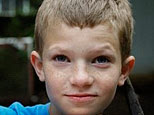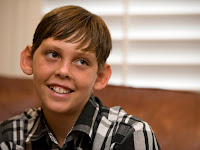SUPER Important Tips for Parents of Children on the Autism Spectrum

Understanding the implication of ASD (high-functioning autism) can bring a greater level of tolerance and acceptance for those with the condition. Here are some traits and behavior patterns commonly seen in ASD: • A youngster can be helped if parents consistently work with him and highlight his strengths and work consistently on his weaknesses. • ASD is often detected when a youngster starts preschool. He will generally interact better with his teacher than his peers and may display silly, loud, aggressive or socially withdrawn behavior. • Kids on the autism spectrum express their feelings in unpredictable ways. Sometimes they may seem emotionless and other times they may display extreme emotion that is not appropriate to the situation. • Kids with ASD prefer routine and structure and can become irritable and distressed if the unexpected happens. • Eye contact is not understood or made use of. ==> How to Prevent Meltdowns and Tantrums in Children with A

